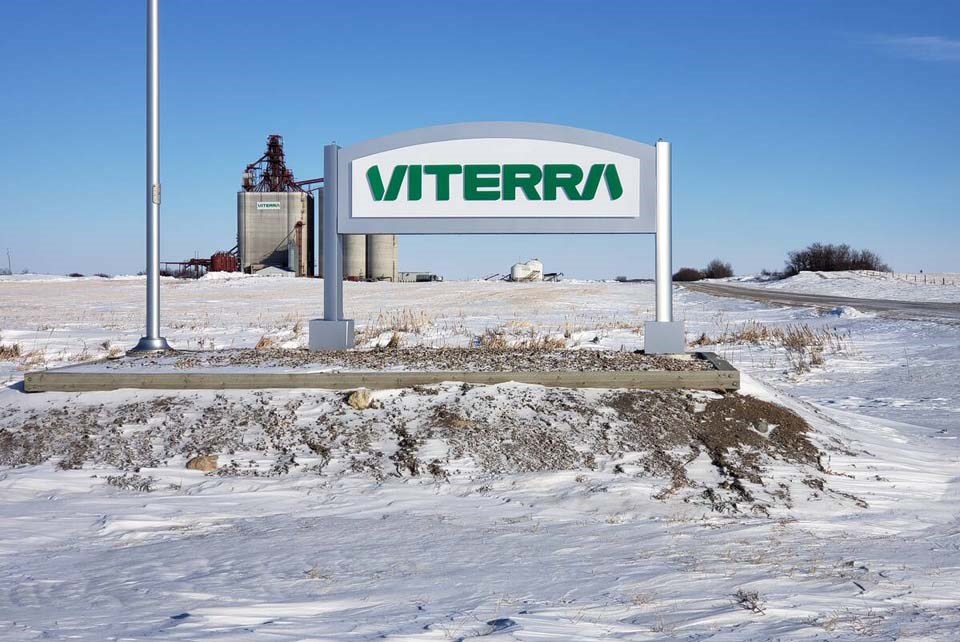SASKATOON — Glencore wants to exit the agriculture business.
The mining giant entered the farm sector with a bang in 2012 when it purchased Viterra for US$6.1 billion.
As part of the deal, Glencore agreed to sell 90 per cent of Viterra’s retail assets to Agrium (now Nutrien) for $1.8 billion.
It also sold a variety of grain handling, crop input and processing facilities to Richardson International for $900 million.
Four years later, Glencore watered down its ownership stake in Viterra, selling 40 per cent of the company to the Canada Pension Plan Investment Board (CPPIB) for $2.5 billion and another 10 per cent to the British Columbia Investment Management Corporation (BCI) for $625 million.
With Bunge’s recently completed acquisition of Viterra, those ownership stakes are now converted to cash as well as some Bunge shares.
Glencore received $900 million cash and about $2.6 billion in Bunge shares on July 2. That represents about a 16 per cent ownership stake in the firm.
The CPPIB received $800 million in cash and a 12 per cent ownership stake in Bunge, while BCI ended up with an undisclosed amount of cash and a minority stake in the firm.
Glencore does not expect to be holding onto its Bunge shares for long.
“Agriculture, for a long period of time has been, if you like, non-core to the broader Glencore industrial, energy and mining part of the business,” Steve Kalmin, Glencore’s chief financial officer, said during a recent conference call with investment analysts.
“(The shares) will be monetized appropriately for the benefits of Glencore shareholders at some point in the future.”
Glencore is obligated to hold onto the shares for one year before putting them on the market, which would by July 2, 2026.
Ironically, Glencore attempted to purchase Bunge in 2017 and is now wanting to rid itself of its shares in the firm.
GrainFox analyst Neil Townsend said there is likely one main reason why Glencore is exiting the agriculture business after a 13-year dalliance.
“The industry at large has a profitability problem,” he said.
Townsend thinks the company can make better use of its $2.6 billion by investing in other aspects of its business, such as mining and energy. The margins in agriculture are too thin.
There is also a “ton of politics” in agriculture, which makes it a risky investment proposition.
“There’s a real wildcard in the Whitehouse right now,” he said.
“What’s U.S. foreign policy going to look like?”
Townsend believes there is another “surge of consolidation” happening in the agriculture business.
“And I don’t detect that it’s consolidation from a point of strength,” he said.
“It’s consolidation from a concern about the future.”
Glencore said it is happy to continue being a major shareholder in Bunge until it is free to liquidate its position in the company.
“We’re very excited about the prospects for that business and a very supportive shareholder and are working well with management and (have) board representation there as well,” said Kalmin.
After the one-year lock-up period has elapsed, the shares will be “up for grabs” and the proceeds generated from the sale of the shares will be distributed to Glencore shareholders.
In the meantime, the Bunge shares will continue to deliver a “nice dividend yield” of about $100 million per year.
“So, we’re getting paid to just sit around at the moment,” said Kalmin.
Townsend wonders whether the Glencore shares will be bought by a sovereign wealth fund such as the Saudis, or maybe COFCO International as a way of securing food supplies.
Or maybe the shares will be purchased by a wealthy agriculture family, such as the Richardsons or Cargills, although he noted that Cargill appears to be shedding assets of late, rather than acquiring them.
About the author
Related Coverage
Bunge’s merger with Viterra stalled by US-China trade tensions, Bloomberg reports
Feds approval of Bunge-Viterra merger frustrates farmers




